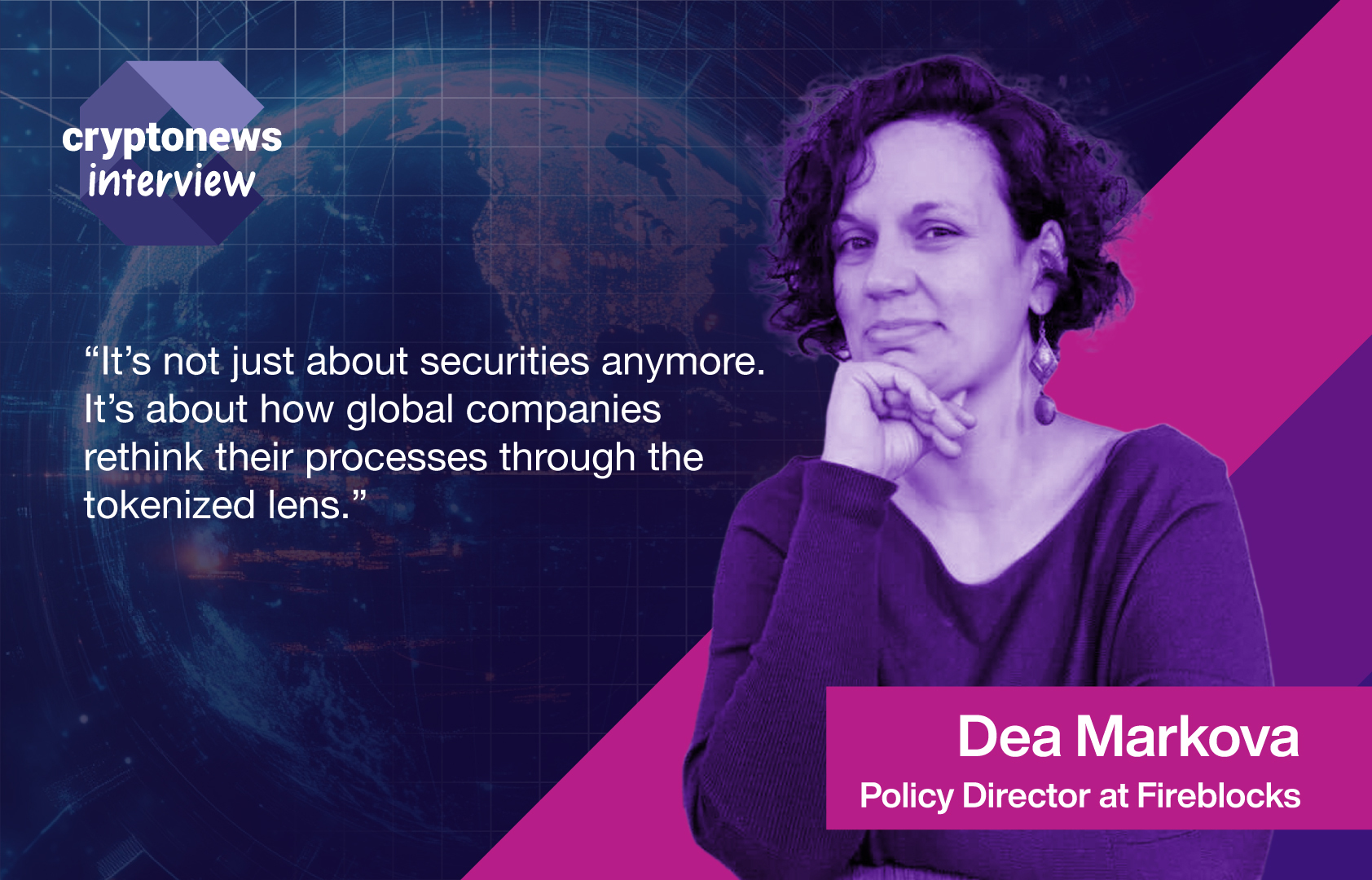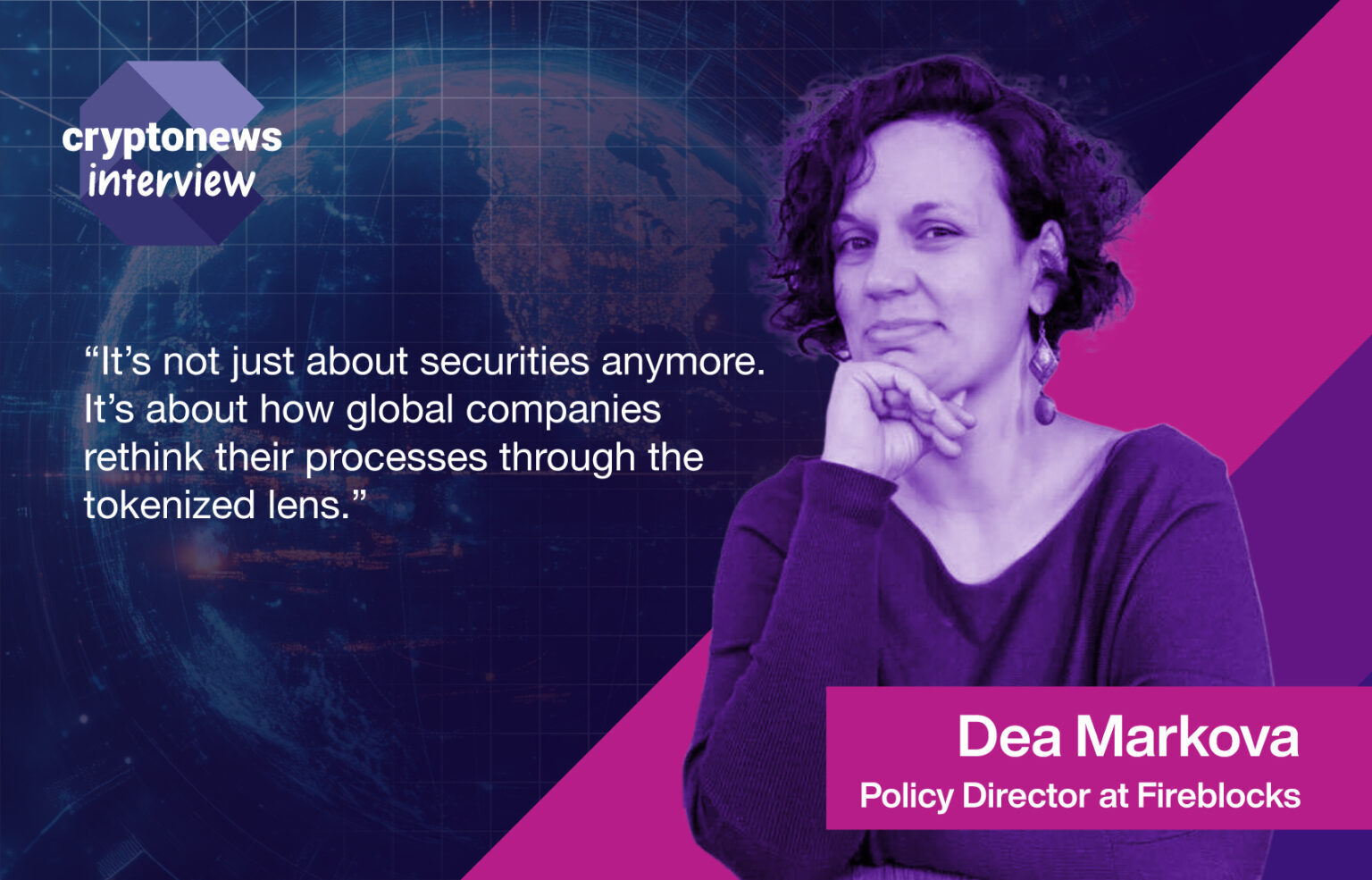
In a rapidly shifting regulatory landscape, some regions are standing out — and the UAE is one of them. According to Dea Markova, Policy Director at Fireblocks, the Gulf nation’s approach to crypto oversight is uniquely effective due to one key structural decision: specialization.
“You have a team that is dedicated specifically to the regulation of digital assets,” Markova told Cryptonews in an interview on the sidelines of TOKEN2049 in Dubai. “That is a USP on its own.”
By assembling a regulatory team focused solely on digital assets, both Dubai and Abu Dhabi have been able to align new technology paradigms — like token issuance and on-chain asset transfers — with long-standing goals of consumer protection and financial stability.
“They have a queue through the door of applicants,” she added. “They can’t process them as quickly as the industry wants, but it’s a strong signal to the market.”
She also credits the Gulf’s success to its recognition of crypto’s inherently global nature. “What you trade in Delhi is the same as what you trade in New York,” she said, noting how traditional regulations struggle with such seamless cross-border interoperability.
Stablecoins: A Sovereignty Play, Not Just a Product
While dollar-backed stablecoins dominate current liquidity, Markova sees the emergence of non-dollar alternatives as a political and economic inevitability.
“The market for non-dollar denominated stablecoins is driven by governments who want to grow that market,” she said.
These stablecoins might not make commercial sense just yet, she admitted — unless you’re trying to hedge away from the dollar — but there’s a strategic incentive for sovereign alternatives like a Hong Kong dollar or Brazilian real-based coin. More importantly, in inflation-prone countries, stablecoins are already proving essential.
“The use case for stablecoins started from currencies like that — Turkey, Argentina — when people needed a store of value their local currency wasn’t providing.”
Europe’s Approach to Crypto Regulations
Markova is diplomatic when discussing Europe’s progress under MiCA, noting that the EU was among the first to design a legal framework. But implementation, she said, is where the problems began.
“There are real issues of inconsistency. The transition period allows for conflicts between member states.”
Without a unified objective between market development and regulation, Markova sees Europe at a disadvantage compared to the Gulf or even the UK, which she called a “fast follower.”
“The UK is learning from others’ experiences,” she said. “What they’ve issued is a legal outline — the details will still come — but the signals are very positive.”
She praised recent UK legislative language that differentiates between custody of tokenized securities and the underlying assets, arguing that this clarity is what traditional institutions need to finally engage.
Banks Are Engaging With Crypto Asset Policy
After years of anticipation, the institutional moment for crypto may finally be here. ETFs were a turning point, according to Markova.
“We have more traditional finance clients venturing into digital assets than ever before.”
The use cases span payments, tokenized funds, and wealth management, and as banks and asset managers dive deeper, they’re now entering the policy arena.
“It was obvious that even global banks had not asked their advocacy teams to engage with digital asset policy. That is changing now.”
She pointed to two imminent policy debates: capital requirements under Basel 3.1, and the role of financial market infrastructure in post-trade settlements.
“The current standards are very punitive on permissionless ledgers. Institutions are starting to push back — they want to engage with public blockchains without being penalized.”
She also raised a fundamental shift in thinking: if blockchain can offer atomic settlement, do clearinghouses or central depositories still need to exist in the same form?
“A World of Tokenized Everything”
Looking ahead, Fireblocks is focused on scaling infrastructure to handle the growing diversity of its client base, particularly in payments. But long term, the company is betting big on tokenization beyond finance.
“We’re imagining a world of tokenized everything. We’re already working with Sony in Japan — think supply chains, gaming, non-financial processes.”
Fireblocks wants to be the wallet and infrastructure layer connecting this new, decentralized ecosystem. “It’s not just about securities anymore. It’s about how global companies rethink their processes through the tokenized lens,” she added.
The post “We’re Imagining a World of Tokenized Everything”: Fireblocks Policy Director Dea Markova appeared first on Cryptonews.
https://cryptonews.com/exclusives/interiview-fireblocks-policy-director-dea-markova/


